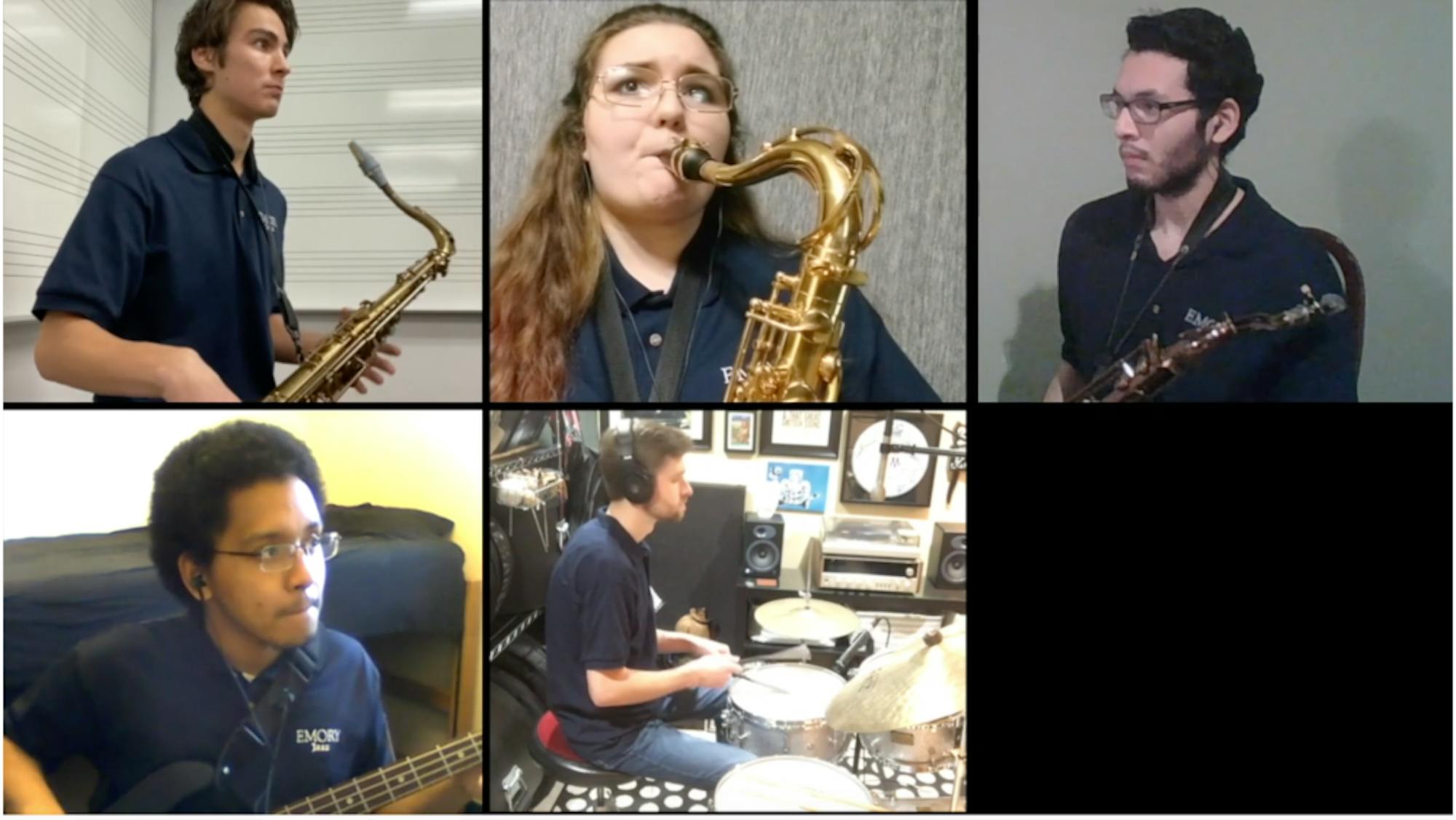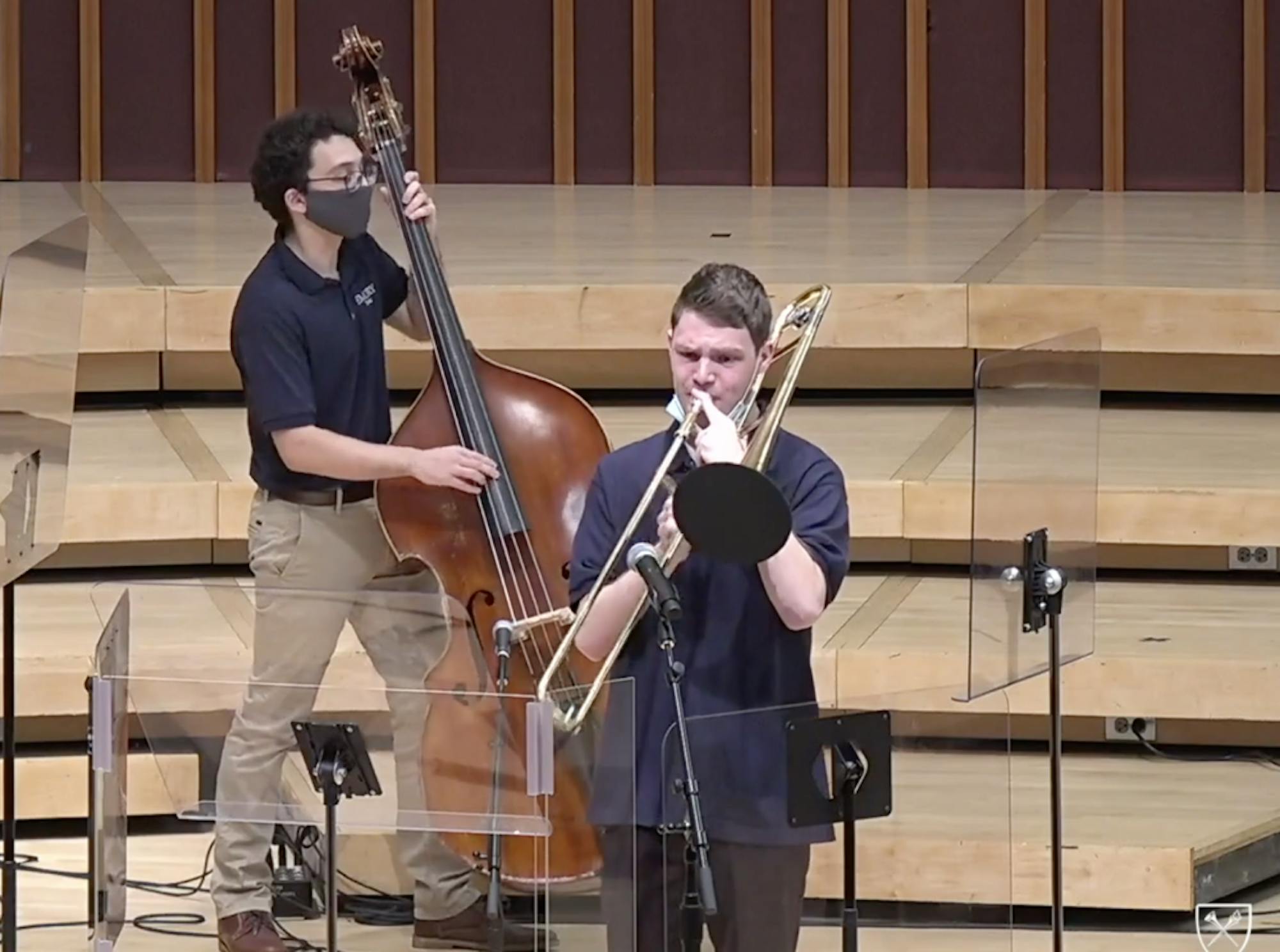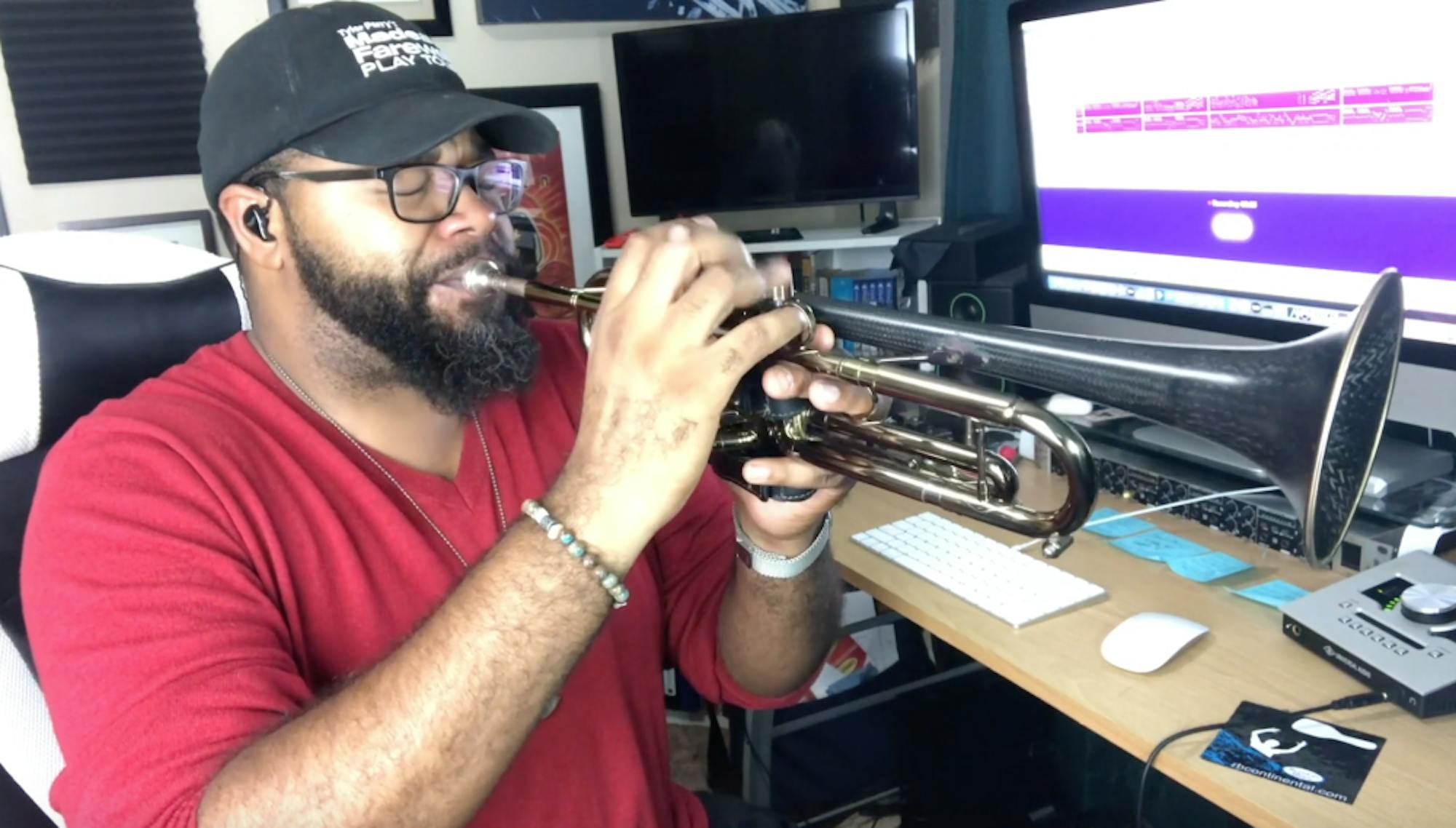In another invigorating performance from the Schwartz Center of Performing Arts virtual stage on Nov. 20, trumpeter and composer Melvin Jones collaborated with the Emory Jazz Department as their artist-in-residence to create a night of performances that highlighted both Jones’ and Emory students’ skillful technique and collaboration.
Jones’ musical talent as a teacher and performer permeated the entirety of this performance, clearly inspiring the accompanying student performers. These students were members of the Emory University Big Band, a jazz ensemble that helps music students of all grades establish their range of performance skills; Jones also guest-taught these students prior to the performance. Also featured was the Emory Jazz Ensemble, a smaller group that allows students to hone their skills, particularly in soloing and improvising. Jane Chakraborty (24C), one of the students in this ensemble and my friend, had initially brought this event to my attention.
“It was fulfilling but in an unconventional way,” Chakraborty said of her experience. “The learning that happened was different than what I expected, and I think I grew as a player.”
The concert began with, for lack of a better term, the jazziest rendition of “Jingle Bells” I’ve ever heard. It was an unexpected but welcomed and joyful introduction to a wonderful evening of jazz. Jones played the trumpet along with the Emory Big Band. His skill was evident in the way his musical trills floated lightly and loudly above the band, making his flair and ability to collaborate with other musicians quite clear.
Gary Motley, the director of Jazz Studies at Emory, welcomed the audience with a bright smile and an even brighter sentiment, stating, “This is a little bit different from the Schwartz Center but we’re gonna have just as much fun and swing just as hard.”
The Emory Jazz Ensemble followed Motley’s remarks with a performance of two back-to-back pieces along with their ensemble director. The first piece, “Blue Bossa,” was softer and more relaxed than the amped-up “Jingle Bells” performance. I felt like I should have been sitting at an underground bar sipping a martini and casually chatting with the bartender, even though I was sitting at my desk in my dorm room. It’s amazing how music can set a certain mood. They then performed “All the Things You Are” by the acclaimed American composer Jerome Kern. Kern’s musical theater background was obvious because the lofty notes of this performance felt like they would fit well on a dimly lit Broadway stage as actors danced under a streetlight prop.
Although my mind was conjuring up images of stage sets and jazz bars, it was lovely to see where all of the musicians were playing from, as each performer was streaming from their own respective spaces, spanning practice rooms to dorm rooms.

Introducing the next piece, Motley reappeared and explained the section was pre-recorded footage from a COVID-compliant performance the ensemble had put on at the physical Schwartz Center stage earlier this semester. This part of the performance gave first-year, on-campus jazz students the opportunity to perform together for the first time.

The video began with a performance of “Nica’s Dream,” a piece that allowed student soloists in the ensemble to shine, from Andrew Wei’s (22C) lively saxophone to Josh Peacock’s (23C) bold trombone.
The stage went quiet as a different selection of jazz ensemble students entered the stage. I knew this next piece was going to be fun to listen to as soon as bassist Kevin Wu (23C) started with the first deep, resonant notes of “Moanin.” Alex Wellisch (23C), another student musician, was also featured with a drum solo. While I don’t often immediately associate jazz music with drums, this performance brought alive the fire, speed and improvisation that the instrument is capable of.
I could not have put it any better than Motley did after the ensemble finished: “I might be a little biased, but I gotta say, they knocked it out of the park.”
The Emory Big Band, along with Jones, then returned to our screens as each musician played from their isolated squares, together, yet apart. Again, the lofty notes of Jones’ trumpet solo floated over the drums and saxophones of the students, unifying the entire piece and imbuing it with the energy and spontaneity that I expect from fantastic jazz music.

Motley thanked Jones for assisting students with their virtual performances and for his residence at Emory. Jones and Motley proceeded to perform “A Night in Tunisia” together, where their knowledge of jazz technique, rhythm and musical mastery was highlighted. The sonorous sounds of Jones’ trumpet combining perfectly with Motley’s gentle, yet swift, piano tones.
Motley ended the evening by briefly interviewing Jones about the process of teaching and performing during a pandemic. Jones expressed admiration for his students and credited their hard work for the night’s success.
The virtual program featured a quote from George Gershwin that summed up both this wonderful combination of jazz performances and the complex era of COVID-19 that has forced many of us, including these performers, to adapt:
“Life is a lot like jazz. It is best when you improvise.”







